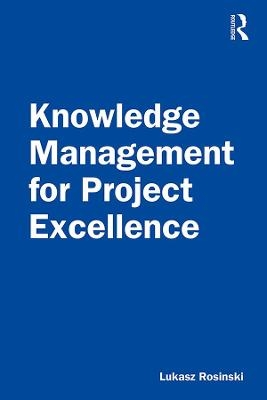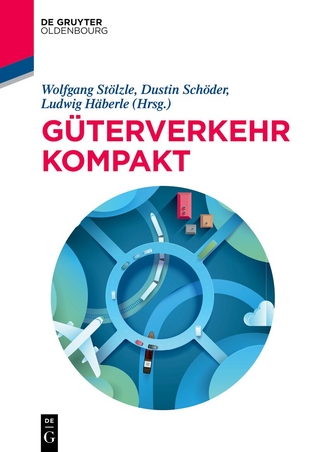
Knowledge Management for Project Excellence
Routledge (Verlag)
978-0-367-35114-4 (ISBN)
- Lieferbar
- Versandkostenfrei
- Auch auf Rechnung
- Artikel merken
The process model consists of eight processes, which are in turn made of activities. These processes are aligned with the generic life cycle of projects and programmes. They drive knowledge processes in project environments. ProwLO is a tool to institutionalize knowledge processing and optimize knowledge processes, and thereby provides the infrastructure for the development of learning organizations.
This book, as a methodology, provides a lot of contextual information for a better understanding of knowledge management in the context of projects. First of all, it provides an understanding of the essence of knowledge. Second, examples of knowledge needs are provided in the context of two PRINCE2 processes and risk management. Third, it provides extensive background information on project management.
This book offers a step-by-step guide to executing successful project management in the context of the key processes. It also provides the reader with a decision-making tool, supported by the capture of Cases, a key experience knowledge type. As such, it is an essential tool for any project manager operating in the knowledge economy.
Lukasz Rosinski has a bachelor’s degree in Information Sciences and a master’s degree in Business Informatics from Utrecht University. He is the founder of KnowledgePlace, a document management system for project-based and project driven organizations. He is also co-founder of CyberKnowmad, a knowledge sharing platform.
List of Figures; Acknowledgements; Introduction; Chapter 1: Knowledge/Information needs in projects; Project Management Information; Example 1: Starting Up a Project (SU); Example 2: Initiating a Project (IP); Example 3: Project Risk Management; Reusable Project Knowledge; Knowledge Type Creativity Model; Chapter 2: Introduction to the ProwLO process model; KM problems as experienced in practice; A parallel Process Model to Project Management; Mapping with other frameworks; Solving the problems; Chapter 3: Initiate Knowledge Processes; Capture Knowledge Needs; Add Meta-data; Define and Plan knowledge activities; Execute SU knowledge activities; Evaluate knowledge needs satisfaction SU; Implement Live Tracking; Implications for other frameworks; Suggested Roles and Resonsibilities; Chapter 4: Directing Knowledge Processes; Identify Knowledge Brokers; Authorize Knowledge Management Strategy; Ad hoc knowledge support; Evaluate Knowledge reuse; Endorse Knowledge Integration; Implications for other frameworks; Suggested Roles and Responsibilities; Chapter 5: Establish Knowledge Processing (Framework); Prepare KM Strategy; Boh’s Framework; Links to KM Initiatives; ProwLO Implementation; Knowledge Strategy Process; Set up Knowledge Management System; Knowledge capture; Project Reviews; Live Capture; Cases-method; Role of PRINCE2; Knowledge integration; Web-based access; Project Knowledge Portal; Knowledge application; Case-based Reasoning; Project Approach; Standards; Refine Knowledge Needs; Update KM Activities Plan; Evaluate Knowledge needs satisfaction Initiating a Project; Execute IP knowledge activities; Examine Project Plan impact; Update Project Initiation Document; Implications for other frameworks; Suggested Roles and Responsibilities; Chapter 6: Trigger Knowledge Value Chains; Review Knowledge needs next Stage; Update KM activities plan; Identify commonness of knowledge (so far); Create new chain; Evaluate previous chain(s); Adopt and update chain; Trigger organizational evaluation; Examine Project Plan Impact; Moderate Gate Review; Implications for other frameworks; Suggested Roles and Responsibilities; Chapter 7: Live Capture; Identify Organizational Knowledge Needs; Identify Project and Individual Knowledge Gaps; Identify repeated nature of Stage Issues; Direct Knowledge Capture; Trigger Case-based Reasoning; Monitoring knowledge value chains; Execution of Stage Activities & Evaluate knowledge application; Report Knowledge need satisfaction; Implications for other frameworks; Suggested Roles and Responsibilities; Chapter 8: Reuse Specialist Knowledge; Review Knowledge Requirements; Capture ad hoc knowledge needs; Evaluate Specialist Knowledge Reuse; Trigger / Endorse Specialist Knowledge Evaluation; Update Organizational Knowledgebase; Update Knowledge Value Chains; Implications for other frameworks; Suggested Roles and Responsibilities; Chapter 9: Optimize Knowledge Value Chains; Review all executed knowledge processes; Consolidate Knowledge Value Chains; Identify Follow-On Action Recommendations; Review newly gained knowledge and experience; Integrate and modify knowledge objects; Evaluate the KM Strategy and KM System; Implications for other frameworks; Suggested Roles and Responsibilities; Chapter 10: Post Project Knowledge Control; Collect feedback on Knowledge objects; Assess validation needs; Asses knowledge potential; Suggest KM Activities; Execute KM Activities; Modify knowledge objects; Implications for other frameworks; Suggested Roles and Responsibilities; Appendix I:;Appendix II: Case example; Appendix III: Lessons Learned Log; Appendix IV: Meta-models; Professional Acknowledgements; References; Index
| Erscheinungsdatum | 20.12.2019 |
|---|---|
| Zusatzinfo | 22 Line drawings, black and white; 24 Tables, black and white; 46 Illustrations, black and white |
| Verlagsort | London |
| Sprache | englisch |
| Maße | 156 x 234 mm |
| Gewicht | 499 g |
| Themenwelt | Technik ► Bauwesen |
| Wirtschaft ► Betriebswirtschaft / Management ► Logistik / Produktion | |
| Wirtschaft ► Betriebswirtschaft / Management ► Projektmanagement | |
| Wirtschaft ► Betriebswirtschaft / Management ► Unternehmensführung / Management | |
| ISBN-10 | 0-367-35114-5 / 0367351145 |
| ISBN-13 | 978-0-367-35114-4 / 9780367351144 |
| Zustand | Neuware |
| Haben Sie eine Frage zum Produkt? |
aus dem Bereich


